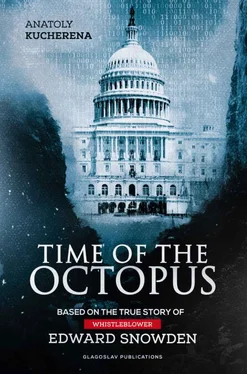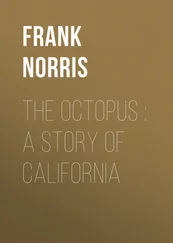Thus, the need to construct Bunker A under Sheremetyevo airport was determined, and the goal achieved, as well as possible in the country of developed socialism, ‘in a short time, ahead of schedule’.
For decades, the bunker stood on ‘alert’ with all its rooms ready to receive high-ranking guests at any second, with all life support systems checked and ready and every safety system in perfect order.
Of course, one might assume that perestroika , and especially that post- perestroika time in which hundreds of similar useless objects were destroyed, would not have spared Bunker A. But the democratic leaders of Russia cared as much for their safety as their totalitarian predecessors, and so the bunker continued to serve, hidden under the new terminals of Sheremetyevo as a relic being, a theromorph of another ancient reptile that conjured horror by the mere fact of its existence.
For all these years, none of the highest dignitaries of the Soviet empire ever visited Bunker A – fortunately, there was no need. The same was true of the leaders of new Russia. And so Joshua Kold became the first – and the only – inhabitant of the bunker.
The Lawyer sometimes wondered: how does he sleep thirty metres down? Don’t ghosts of the past eras disturb him in this place where six workers died, according to hearsay, in the lift mine of the bunker during a construction glitch?
It is much better to ask such questions over a glass of fine cognac or vintage wine, in a nice, friendly chat. But Kold, it seemed, wasn’t willing to be on friendly terms with anybody, and kept himself closed and detached, justifying his surname. Perhaps some positive news might perk him up, or bring him out of his stupor, but the message the Lawyer was carrying to the inhabitant of Bunker A hardly promoted a positive spirit.
The elevator stopped, the next officer on duty opened a door and stood aside to let the Lawyer pass.
In front of him there was a corridor with all the same oak panels, and a thick carpet pathway to muffle the sound of footsteps. The doors were marked only by stark alphanumeric codes, and the dim light glowed from opaque plafonds in the ceiling.
There was one more guard post to negotiate, at which the Lawyer had to open the contents of his briefcase to a Federal Protective Service officer. Then at last, turning round a corner in the corridor, after passing through highly secure isolation compartments designed to protect against the penetration of toxic agents, the Lawyer stopped at a door marked very simply ‘Lounge.’
For reasons only they knew, the journalists above, with the special powers of concentration and highly developed cynicism of the all-understanding and all-knowing professional, were sure that the whole world danced to their tune.
But from down here, at a depth of thirty metres, they seemed like the bunch of kids the cunning and artful piper from Hamelin led astray. The piper, as is well-known from the story, very dexterously coped with rats, but also drew children away with no less success.
Then chasing unnecessary thoughts and allusions away, the Lawyer knocked on the door and pushed.
The Lounge was a large room with a sofa, several chairs, a small billiard table up against a wall and an oval table of walnut under a massive triple-armed chandelier with opaque plafonds. A wall clock in a wooden case ticked, emphasizing the silence in the bunker.
Joshua Kold was sitting at the table looking like a diligent pupil with straight back, and hands on the table. He was clean-shaven, except for a small hipster beard, and he was dressed in a grey shirt, jumper, and jeans – all reminiscent of a student concentrating before an important exam. The illusion was supported by the pile of books to the right of Kold. The Lawyer skimmed their spines – reference books on law in English, the Bible, George Orwell’s ‘1984’ , and also Dostoyevsky’s ‘Crime and Punishment’ and other books gifted by Lawyer on his previous visit.
On the table, there was a metal tray with couple of glasses and several small bottles of water. There was a flat screen TV on the wall behind Kold. In the corner, there was the already familiar floor lamp with the hammer and sickle hidden, and nearby there was a door connecting to another room, most likely, a bedroom.
The lounge didn’t smell at all like the rest of the bunker with its thin, almost imperceptible odour of Cold War – a smell of dampness, rusty metal and burnt electrical wiring. Here it smelt quite civilized – coffee, good perfume and fried bread.
“Good afternoon!” the Lawyer said softly.
Kold raised his shining black eyes towards him. Seen through the glasses, they reminded him of olives.
“Good afternoon, hello,” the young man got up and shook hands with Lawyer. He had a palm as dry and firm as if turned from a tree. “Sit down, please.”
“Thank you.” The Lawyer put his briefcase on a floor, pulled up a chair and sat down opposite Kold. “How are you? How do you feel? Where there any requests, wishes?
There was a pause. Kold opened the folder and pulled out a sheet of paper on which there was some writing.
“I’m fine,” he said calmly, scanning the writing. “Only one request. Let Ms. Morisson meet me no more than once a day, and only in the briefing room, not here.”
Rebecca Morisson was the plenipotentiary representative of Mikiliks, the scandalous international revealers of secrets, and maybe the girlfriend of its founder Augusto Cassandzhi. Cassandzhi had already been hiding for a long time in the Ecuadorian Embassy in London. In Kold, Cassandzhi at once saw a kindred spirit and disciple. How Kold saw ‘the great unmasker’, as Cassandzhi was called, is unknown, but he obviously didn’t favour Ms. Morisson.
The Lawyer remembered that in a lobby of the Presidential Administration there was talk that all the story of Mikiliks and the attempts to catch Cassandzhi were well and skilfully thought-through provocation.
“But there remains the question of what Kold’s business actually is,” he thought, examining his subject. “In our information century any release of compromising data is a Pandora’s box and who gets what out of it nobody knows.”
“I’ll let them know your request,” the Lawyer nodded. “Anything else? How are you fed?”
“Thanks, the food is ok.”
“How are the conditions?”
“Perhaps, it might be more comfortable up above.” Kold said raising his eyes to the ceiling. “But hardly safer.”
“Aren’t you afraid to become the new Nasseri?” the Lawyer asked.
“Who is that?” Kold inquired disinterestedly.
“Well, it’s a well-known story. Mekhran Karimi Nasseri, Iranian political refugee. In 1970 he was exiled from the country for his participation in antigovernment activities and protests. He wandered for several years between different countries, and finally obtained citizenship of Belgium and, respectively, a passport. In 86, Mekhran travelled from Belgium to London where his relatives lived, but at Heathrow airport it transpired he had no documents – either he lost the passport or it was stolen. The British returned Mekhran to the airport of departure, the Charles de Gaulle in France. There it became clear that he couldn’t return to Belgium for the same reason – there were no documents. But then there were also no legal reasons to deport him from France. It was noted that he had entered the country absolutely legally because at that time Mekhran had documents. So he got stuck in the transit area of Charles de Gaulle. Do you know for how long?
“No, I don’t know.”
“For eighteen years!”
“Why couldn’t the Belgians just give him a duplicate passport?” Kold made a gesture of bewilderment.
Читать дальше












